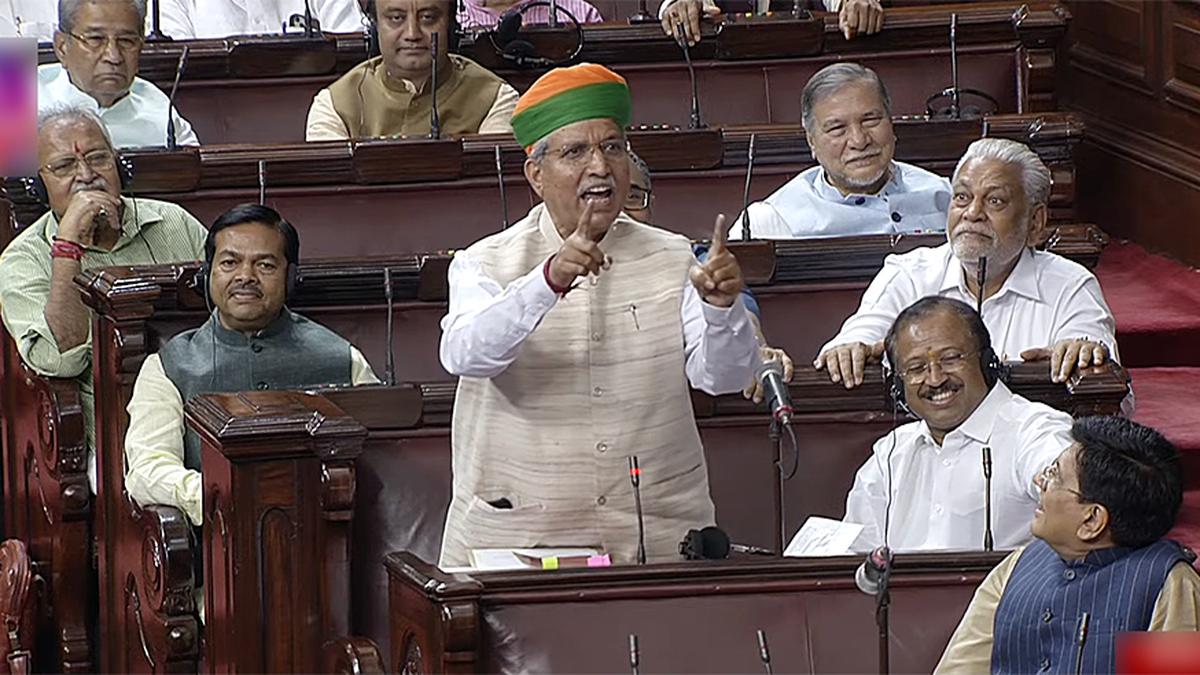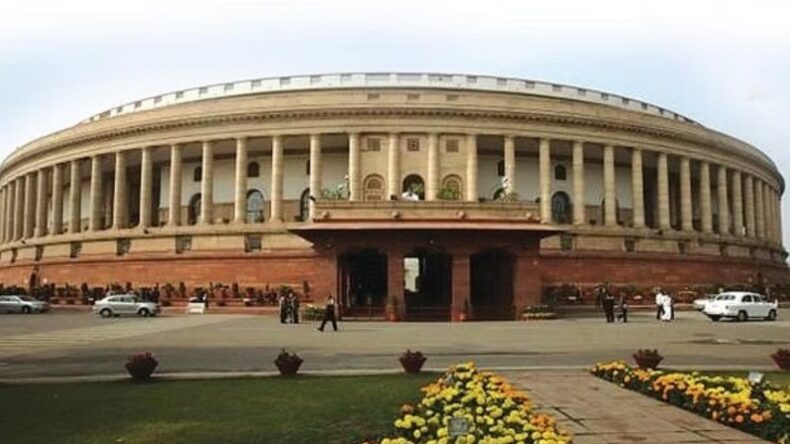The Constitution bench’s verdict on March 2 was issued when there was no law in place to regulate the appointment of the Chief Election Commissioner (CEC) and Election Commissioners (ECs), as mandated by the Constitution.
On Thursday, the central government presented a bill in the Rajya Sabha that effectively counteracted a Supreme Court ruling. The ruling had aimed to reduce the executive’s unilateral authority in appointing the CEC and ECs by including the Chief Justice of India (CJI) as part of the selection panel.
Under the Chief Election Commissioner and other Election Commissioners (Appointment Conditions of Service and Term of Office) Bill, 2024, the President would confirm appointments based on the recommendation of a selection body. This selection body would consist of the Prime Minister, the Leader of the Opposition (LoP), and a Union cabinet minister nominated by the Prime Minister.
Although the March 2 constitutional bench ruling explicitly stated that the suggested selection panel “will continue to hold good till a law is made by Parliament,” the Supreme Court had extensively referred to a similar model used for appointing the Central Bureau of Investigation (CBI) director and the Lokpal. This was to emphasize the adverse consequences of leaving appointments solely in the hands of the Executive.
Proposed by Law Minister Arjun Ram Meghwal, the bill specifies that a search committee led by the cabinet secretary, along with two other government secretaries, would shortlist five names for the selection committee to consider for the positions of CEC and ECs. The selection committee could also evaluate names beyond those recommended by the search committee. Furthermore, if an EC is appointed as a CEC, their maximum cumulative term would be six years.

Regarding the qualifications of CEC and ECs, the bill states that they should either be in or have held a position equivalent to the rank of secretary to the Government of India. They should also possess integrity and knowledge of and experience in election management and conduct. Although the maximum term for CEC and ECs is six years or until the age of 65, reappointment would not be permitted.
However, the bill is not scheduled for discussion and passage during the ongoing monsoon session, which concludes on Friday.
The March 2 constitutional bench ruling was delivered due to the absence of a law regulating CEC and EC appointments as mandated by the Constitution. Instead, appointments were carried out through the 1991 Transaction of Business Act, which the court found lacking in objective standards for selection and qualification.
The March verdict by the five-judge bench established that CEC and ECs would be chosen by a panel comprising the PM, the LoP (or the leader of the largest Opposition party in Parliament), and the CJI, until Parliament enacted a law regarding appointments.
By including the CJI in the selection panel for CEC and ECs, the Constitution bench, led by Justice KM Joseph (now retired), acknowledged that the CJI also participated in selecting the CBI director and the Lokpal’s chairperson and members. The bench made it clear that this arrangement was subject to any future law made by Parliament, dismissing the government’s objection that CJI’s involvement in the EC selection process wasn’t enough to ensure fairness.
The bench stressed the necessity for the apex court to intervene and establish a mechanism since different political parties had failed to fulfill their constitutional obligation under Article 324(2), which called for legislation to guide such appointments.
Under Article 324(2) of the Constitution, the President can appoint CEC and ECs, provided it’s done in accordance with any law passed by Parliament. However, in the absence of such a law, appointments were made by the PM and council of ministers with the President’s approval. The rules for these appointments lacked clarity on qualifications, prompting the Supreme Court to criticize the Centre for making appointments without objective criteria.
The court noted that establishing a law for these appointments was a “constitutional imperative” and an “unavoidable necessity.” As Parliament didn’t fulfill this requirement, the highest court needed to intervene to fill the vacuum.
Opposition criticizes bill excluding CJI
In response, Delhi Chief Minister Arvind Kejriwal accused the Prime Minister of undermining Indian democracy through successive decisions. Kejriwal highlighted that the PM seemed to disregard the Supreme Court’s orders he disagreed with, signaling a dangerous situation.
The BJP, however, argued that the government had the right to introduce the bill, as the Supreme Court had suggested a temporary method until a statutory mechanism was in place.
Sushmita Dev, a Trinamool Congress Rajya Sabha MP, expressed concern that this move aimed to control an institution that should remain independent. She noted that while the Leader of the Opposition would be a member of the selection panel, they would likely be outnumbered.
A vacancy in the poll panel is expected early next year when Election Commissioner Anup Chandra Pandey retires on February 14 upon reaching the age of 65. This retirement aligns closely with the anticipated announcement of the 2024 Lok Sabha election dates.












